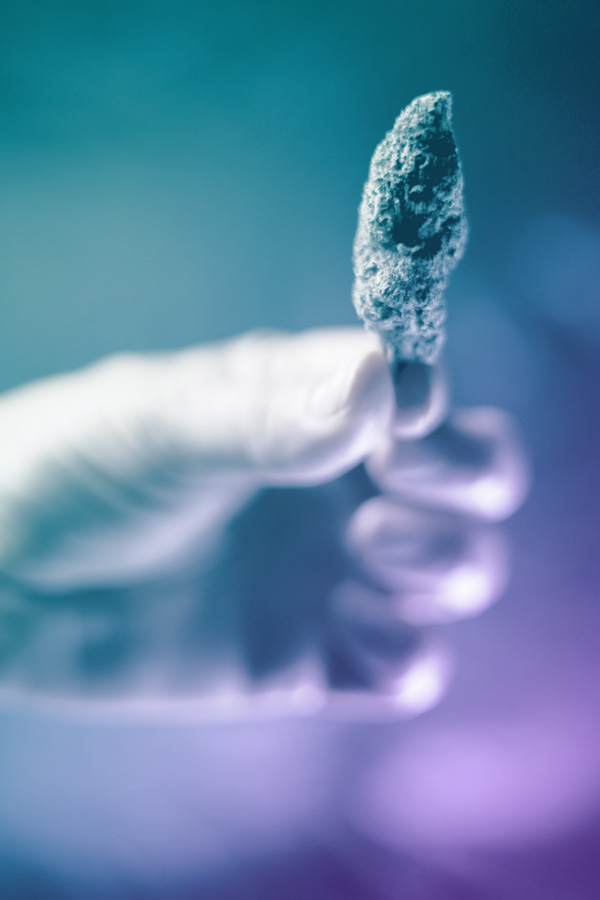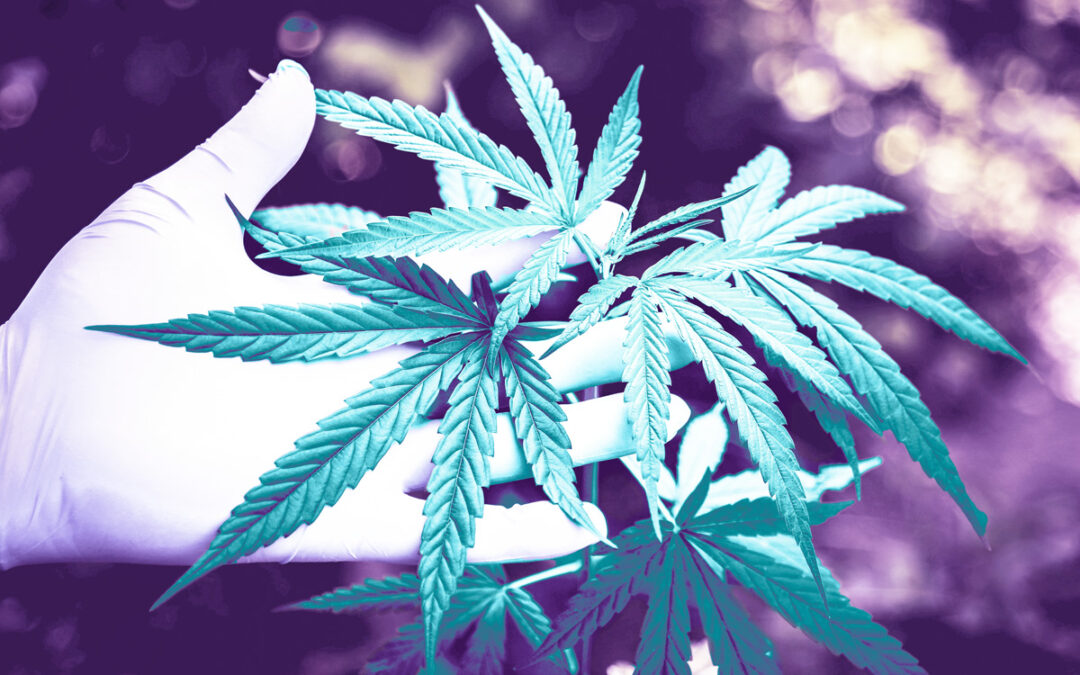Is Delta-8 Safe?
Delta-8-tetrahydrocannabinol (or delta-8 THC) is a psychoactive compound that occurs naturally in hemp and cannabis (marijuana) plants. This compound is called a cannabinoid and is found in trace amounts within cannabis. Delta-8 is an increasingly popular product that is in huge demand because users enjoy the high it produces.
Issues surrounding the use of delta-8 are growing, as the legal sale of the substance is being called into question and problems surrounding its production draw pushback from the Food and Drug Administration and legislators. There are deep concerns about the widespread availability of delta-8 THC and how users remain unaware of byproducts that pose serious public health risks.

What Is the Delta-8 Craze About?
The production of delta-8 began with an oversupply of hemp-derived CBD that caused prices to fall. Producers needed a way to clear the surplus, so they searched for a method that would change CBD properties into delta-8 THC. The resulting products draw people because they deliver a more powerful effect than typical forms of CBD.
This substance is marketed for stress and anxiety relief and for other medical and therapeutic needs. Products are found almost everywhere including dispensaries, smoke shops, gas stations and convenience stores. The variety of choices has popularized their use, too. People can find delta-8 sold as tinctures, gummies, vape cartridges and certain food items, such as cookies and brownies.
Why Is It Controversial?
An important thing to understand about delta-8 THC is its close relationship to delta-9 THC, the more intoxicating psychoactive compound found in cannabis. While delta-8 produces psychoactive effects, it is frequently referred to as “diet weed” and “marijuana light” since its chemical properties are similar to but not as strong as the well-known delta-9.
Yet the truth is that delta-8 products do cause people to get high and expose them to larger doses of the substance than naturally occur in a cannabis plant. While the euphoric feeling makes the substance wildly popular and drives sales, the FDA is worried that people have no idea what they are consuming. Additionally, other substances used to produce delta-8 are, mostly, not identifiable through lab tests.
Since these products are readily available, people often assume they are safe to consume. To make matters worse, the lack of age restrictions on the sale of these goods makes it easy for anyone to purchase them.
How Is Delta-8 Produced?
Delta-8 is an isomer (a similar compound with a different structure and properties) of delta-9 THC. While it can be extracted in its purest form directly from a raw hemp plant, most producers are currently making synthesized versions from CBD extracted from hemp. Pure forms of delta-8 and delta-9 do not appear to cause serious health risks. However, the chemical concoctions used to extract delta-8 from cannabidiol is another story.
An organic solvent is used to convert CBD to delta-8 THC. This strong acid produces chemical changes to the CBD. Because this process requires such aggressive methods to derive delta-8, there is a need to introduce strong bases to neutralize the conditions.
What concerns researchers is the lack of oversight around the production of delta-8. Traditionally, products like these are monitored by the FDA under strict quality controls. Without these measures, manufacturers may not have the necessary laboratory environments or proper skills to create safe products.
In fact, chemists doing tests on byproducts sometimes find residual acids and a number of unidentifiable compounds in delta-8 THC goods on the market. They are worried that there is no way to know the makeup of these saleable items that have not undergone proper distillation to remove harmful chemicals.
Is It Legal?
If the sale of delta-8 is cause for concern, why is it on the market? The answer to this question stems from the passing of 2018 Farm Bill. Due to this legislation, Cannabis sativa L. (or hemp) and cannabis derivatives with very low levels of the psychoactive compound delta-9 tetrahydrocannabinol (less than .03%) are no longer defined as marijuana, which is regulated under the Controlled Substances Act.
This leaves a gray area of legality. As the law is currently written, producers of delta-8 THC are free to make products if they meet the guidelines outlined in the 2018 Farm Bill. However, without proper oversight of the manufacturing process, many items going to stores may not be safe for public consumption.
Again, the problem lies in the production process and how these goods are made. In some cases, the extraction process means variable amounts of delta-8 THC are in products. These can be much higher concentrations than customers realize. Additionally, byproducts are equally worrisome, as consumers are exposed to all kinds of unwanted chemical compounds.
What Are the Risks?
The FDA received significant adverse reports on the use of delta-8 products from December 2020 to July 2021. These reports stemmed from information provided by consumers and law enforcement officials. People who ingested gummies and food items containing delta-8 reported symptoms such as rapid heartbeat, nausea, dizziness, vomiting, hallucinations and loss of consciousness.
Furthermore, poison control centers across the country received over 660 calls regarding delta-8 exposure incidents from January of 2021 to July 2021. This is the breakdown of exposure statistics:
- Children under 18 years of age represented 39% of calls
- Unintentional exposure was identified in 41% of calls (77% of these unintentional cases were patients under 18)
- Hospitalizations were required for 18% of patients (some needed treatment in an intensive care unit)
These health risks are intensified by an industry that is looking for ways to put more of these goods on the market. The greater the market demand, more producers are likely to get into the delta-8 business. Many of these producers have no idea of what they are producing and have no incentives to change their sketchy manufacturing processes.
Why Are There Calls for Regulation of Delta-8 THC?
The recent surge in incidents of delta-8 exposures has prompted the FDA to begin warning the public about using these products. These are the reasons the administration believes public service announcements are warranted:
- Marketing campaigns by companies selling delta-8 are frequently geared toward children under the age of 18
- Poor quality control in manufacturing processes that may contaminate products and increase the risk of harmful outcomes for consumers
- Poison control calls on the rise due to the use of delta-8 products
Adverse reports are growing which is causing lawmakers and federal regulators to take notice. One issue is the labeling of products to appeal to younger children. Labels on gummies, baked goods and candies are designed to draw in younger customers. With no age limits on who can buy these products and the availability at many stores, public health concerns continue to grow.
What’s the Future of Delta-8 THC?
Delta-8 was recently added to the Drug Enforcement Administration’s list of controlled substances. However, this decision stands in contrast to the 2018 Farm Bill that allows the production and sale of cannabinoids derived from hemp. The legalization of industrial hemp and all its extracts and derivatives without restrictions is putting regulators in a bind.
Some lawmakers have introduced legislation to identify delta-8 as a controlled substance. Still, these products remain legal in 30 states. Other states have made restrictions on its sale or use or banned it altogether. Due to potential risks, lawmakers and researchers agree there needs to be some sort of consensus on how to regulate this growing health issue.
Get Recovery Help Now
At Clean Recovery Centers our mission is to provide addiction treatment services that help you get your life on track. We realize that you need a full spectrum of personalized treatment options to achieve sobriety and help you build on your strengths. Our program is designed to meet you where you are, with a plan that considers your physical, emotional and spiritual health.
We believe a whole-person approach is the most effective way to support you, so we offer a unique treatment recovery flow in three phases: preparation, action and maintenance. If you need a fresh start, please contact us today to learn more about our program.
Sources:
- https://www.fda.gov/news-events/congressional-testimony/hemp-production-and-2018-farm-bill-07252019
- https://www.fda.gov/consumers/consumer-updates/5-things-know-about-delta-8-tetrahydrocannabinol-delta-8-thc
- https://cen.acs.org/biological-chemistry/natural-products/Delta-8-THC-craze-concerns/99/i31
- https://www.discovermagazine.com/lifestyle/is-delta-8-thc-legal-in-your-state-our-guide
- https://www.forbes.com/sites/willyakowicz/2021/07/01/the-fight-over-delta-8-thc-products-is-a-battle-for-the-future-of-the-cannabis-industry/?sh=1637dc6e2d80
- https://www.newsweek.com/tates-where-delta-8-thc-illegal-texas-temporarily-legalizes-cannabis-extract-1648316


